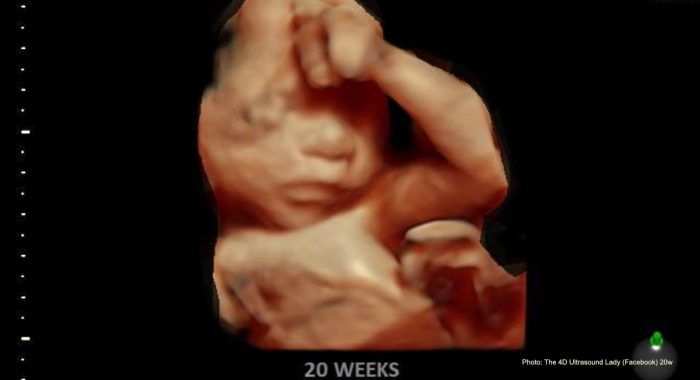A Wisconsin woman is calling the state’s abortion law “cruel” after her baby was diagnosed with a health condition and she traveled to Minnesota to abort him in the second trimester.
Key Takeaways:
- Megan Kling was 20 weeks pregnant when she learned her son Nolan had bilateral renal agenesis, which is when the kidneys do not form. He was also missing his bladder and had signs of other health concerns as well.
- At the time in Wisconsin, most preborn babies were protected from abortion. Kling decided to travel to Minnesota for a second-trimester abortion.
- Premature labor was induced with the intention of shortening her son’s life. He survived for about an hour after birth.
- Although there is a small chance of survival with Nolan’s diagnosis, other children have been able to beat the odds.
The Details:
Megan Kling told News 8 Now that she never thought she would have an abortion — until her preborn baby received a health diagnosis. She and her husband had two young girls and were expecting their third child, a boy, in 2023. Everything was going according to plan until the 20-week ultrasound revealed something they did not anticipate.

A preborn child at 20 weeks gestation (4D Ultrasound Lady – Facebook)
“Unfortunately, at that ultrasound we uncovered something extremely wrong with our baby,” said Kling. “So, we were told that our baby would either die in utero or an hour or two after giving birth. It wasn’t a matter of if, it was when … we were devastated.”
The baby boy, named Nolan, was diagnosed with bilateral renal agenesis, also called Potter syndrome, a condition that meant he did not have kidneys. He also did not have a bladder and there appeared to be abnormalities with his heart and brain. If this diagnosis was correct, there was a high likelihood that Nolan would die during pregnancy or at birth.
At the time, Wisconsin’s pro-life law was in effect, prohibiting the killing of most preborn children. Since then, the state Supreme Court has ruled that abortions should be legal up to 20 weeks for any reason and after 20 weeks if the mother’s life is at risk. In either case, Kling wouldn’t qualify for an abortion, as she did not have an approved reason to end her child’s life prematurely.
READ: Some say baby boy was ‘born twice’ due to mom’s rare ovarian cancer surgery
“So, any woman who is doing a 20-week ultrasound where they’re doing a complete scan of anatomy on that baby, it’s going to be too late … for her to make a decision on how to move forward with a possibly very complicated pregnancy,” said Kling.
She added, “We needed to go across state lines to do what was right for us in our situation; it infuriated me, and it added to the trauma of the loss of our son.”
The couple traveled to Minnesota, where Kling was induced on November 10, 2023.
“My husband and I were able to hold our son for an hour until he passed away in our arms,” she said.
She is now sharing her story in hopes of changing Wisconsin law. “The policies are very cruel and that is the entire reason why I chose to share my story,” she said. “I believe that women deserve better. These laws hurt mothers and real families when they are faced with devastating situations.”
But are these policies actually cruel and harmful to mothers and families?
Why It Matters:
Abortion advocates would argue that it was morally acceptable to induce the delivery of Nolan early because, whether he was born at 22 weeks or 40 weeks, he was going to die. But they fail to see that Nolan was treated differently from other children because of his health status and because of his location in the womb.
In 2020, a family in Florida was facing a similar diagnosis. Andi Mahoney was told at 20 weeks that her preborn baby girl, Emmie Hope, had bilateral renal agenesis. Though her case may have been less severe than Nolan’s, doctors also told her family that there was no chance of her survival. Mahoney tracked down a medical team that would help her, underwent amnioinfusions during pregnancy, and after Emmie was born, cared for her on dialysis for two years before she was able to donate her own kidney to her.
“I didn’t think twice. I knew I was giving my kidney to Emmie,” she said, adding, “She was such a happy child that she just needed a chance. I am so thankful to the Lord and the doctors he chose for me.”
Rep. Jaime Beutler’s daughter was also diagnosed with the condition in the womb and survived thanks to a kidney transplant from her father.
The Bottom Line:
Pro-life laws are not designed to “hurt mothers” as Kling suggests, but to help them. It is cruel to put mothers in a position in which they are expected to end their child’s life through abortion, and if they refuse abortion, they are met with ridicule and continued pressure to abort.
Follow Live Action News on Facebook and Instagram for more pro-life news.







